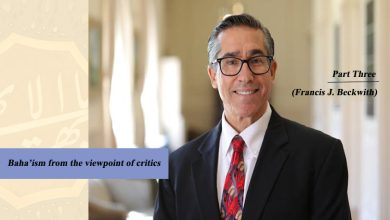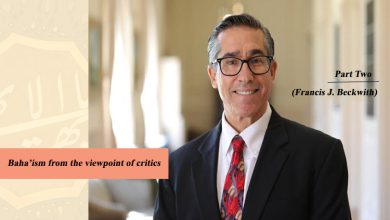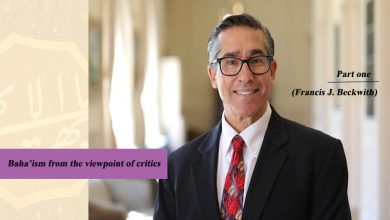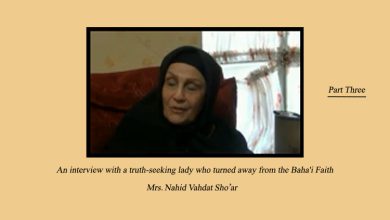
“John Ricardo I. “Juan” Cole (born on 23rd of October 1952) is an American scholar, public intellectual, and historian of the modern Middle East and South Asia. He is Richard P. Mitchell Collegiate Professor of History at the University of Michigan. Cole has published several books on modern Middle East and is the translator of some Arabic and Persian texts to English. He who was from a Christian family became a member of Baha’i cult, but resigned from the cult in 1996 after disputes with Baha’i leadership concerning the Baha’i system of administration. He runs a weblog called Informed Comments on the address “juancole.com” which is also released on truthdig.com simultaneously.
Background and education
Cole was born in Albuquerque in New Mexico. His father served in the US Army’s Signal Corps. At the age of two, his family left New Mexico for France. His father completed two tours, a total of seven years with the U.S. military in France and one 18-month stay at Kagnew Station in Asmara, the capital of Eritrea, then Ethiopia. Cole reports that he first became interested in Islam in Eritrea, which has a population roughly half Christian and half Muslim. Cole was schooled at twelve schools in twelve years, at a series of dependent schools on military bases but also sometimes in civilian schools. Some schooling occurred in the United States, particularly in North Carolina and California.
Cole obtained his undergraduate degree at Northwestern University in 1975, having majored in History and Literature of Religions. For two quarters in his senior year he conducted a research project in Beirut, Lebanon and returned to the city as a graduate student in the fall of 1975, but the civil war prevented Cole from continuing his studies there. Therefore, he pursued a master’s degree at the American University in Cairo in Islamic and Middle Eastern studies, graduating in 1978. Cole then returned to Beirut for another year and worked as a translator for a newspaper. In 1979, Cole enrolled at the University of California, Los Angeles as a doctoral student in the field of Islamic Studies, graduating in 1984. After graduation, Cole was appointed Assistant Professor of History at the University of Michigan where he became a full professor in 1995.
Cole is from a mixed Catholic and Protestant heritage, but was brought up a non-denominational Protestant on army bases. In the late 1960s and the 1970s, he became interested in Eastern religions, including Buddhism. Cole became a member of the Baha’i Faith in 1972 as an undergraduate at Northwestern, and the religion later became a focus of his academic research. He resigned from the faith in 1996 after disputes with Baha’i leadership concerning the Baha’i system of administration. This particularly happened after he was threatened and was asked to censure his writings by the Baha’i administration.
Appointments and awards
Cole was awarded Fulbright-Hays fellowships to India (1982) and to Egypt (1985–1986). In 1991 he held a National Endowment for the Humanities grant for studying the beliefs and history of Shia. From 1999 until 2004, Juan Cole was the editor of “The International Journal of Middle East Studies”. He has served in professional offices for the American Institute of Iranian Studies and on the editorial board of the journal “Iranian Studies”. In 2004, Cole was appointed as the president of Middle East Studies Association of North America. In 2006, he received the James Aronson Award for Social Justice Journalism administered by Hunter College.
Scientific records
- 1975: B.A. History and Literature of Religions, Northwestern University
- 1978: M.A. Arabic Studies/History, American University in Cairo
- 1984: Ph.D. Islamic Studies, University of California Los Angeles
- 1984–1990: Assistant Professor of History, University of Michigan
- 1990–1995: Associate Professor of History, University of Michigan
- 1992–1995: Director, Center for Middle Eastern and North African Studies, University of Michigan
- 1995–2007: Professor of History, University of Michigan
- 2007–present: Richard P. Mitchell Collegiate Professor of History, University of Michigan
- 2009–2012: Director, Center for South Asian Studies, University of Michigan
Research fields
Cole, who had become a Baha’i in 1972, began his academic research on the Baha’i Faith. Being a Baha’i encouraged him to study the languages, culture, and history of the Middle East (the origin of the Baha’is) and to propagate the Baha’is in countries with large numbers of Muslims; countries such as Lebanon, Egypt, Jordan and India. He now speaks fluent Arabic, Lebanese and Egyptian Arabic, Persian and Urdu and is familiar with Turkish language. Some of Cole’s interests are rooted in his Baha’i background. He has also written about the Shiite crescent and Islam in general.
His articles on Sheikh Ahmad Ehsaei are based on his research in National Endowment for the Humanities. Cole concluded that Sheikh Ahmad Ehsa’i was later mistakenly attributed to the Babi and Baha’i religions, and that these religions did not follow in the footsteps of the Sheikhieh in terms of beliefs.
Cole left the Baha’i Faith in 1996 following a disagreement with the leadership of the Baha’i administration. He later stated that he had achieved personal views but still had no interest in the Baha’i Faith. Cole continued to publish books on the Baha’i faith for many years after his separation from Baha’ism. Of course, the subject of his writings became significantly more political after 9/11. He has translated three volumes of Gibran Khalil Gibran’s Arabic works into English.
Baha’i studies
During his time as a Baha’i, Cole continued his studies of Buddhism and Sufism, escaping the sectarian and anti-ideological states of the Baha’i community. It gradually became clear to him that the Baha’is do not really believe in the equal rights of men and women, and he realized, for example, that women could not join Beit al-Adl or the House of Justice, which is the highest governing body of Baha’ism. He even realized that their beliefs about racism have no external function and that they practically remain silent; finally, it became clear that the Baha’is are no more pluralistic than Catholics and Muslims, believing that only their religion is perfect and that the other religions are imperfect. It then became clear that the House of Justice was not pacifist either, and among their sectarian ideologies, it is stated that the religious rule of Baha’ism should rule the world. Accordingly, Cole gradually lost interest in the Baha’i faith and in 1982 married a non-Baha’i. After his wife was expelled from the Baha’i community, Cole cut off his services to the Baha’ism and stopped attending their ceremonies. In 1990s, when he was still active in the Baha’ism, he was hated by the Baha’i administration for conducting historical and political debates. In 1996, he was contacted by a high-ranking Baha’i official who threatened to declare him a “covenant breaker.” The followers of the Baha’ism will cuts off their connection with the person who has broken covenant, as well as those associated with him or her. He was amazed at the threatening tactics and closed-minded management of the House of Justice, refused to stay in the Baha’i community, and eventually left the Baha’ism in the same year. Cole served a lot for the Baha’i community when he was a Baha’i; He was one of the first Baha’is who settled in Beirut and founded the Baha’i community in Beirut. He even served in the villages of Gambia and Seneca and taught them how to form the village’s Baha’i local council.
In the early years of his career, Cole made connections with his fellow Baha’i scholars. He founded the H-Bahai Project and published on this site many of the unattainable works of Azali and Baha’ism, such as the book “Persian Bayan” and “Badi”. Many of his early writings were published by the Baha’i Publications or in the online publication of his site, some of which were translations of Golpayegani’s works.
Doctoral dissertation book
Cole’s book titled “Roots of North Indian Shi`ism in Iran and Iraq: Religion and State in Awadh 1722-1859” was published by University of California Press in 1984. The book is based on Dr. Cole’s doctoral dissertation at the University of California, Los Angeles. The main focus of this book is the historical study of the formation of Pakistan in 1947 and the Islamic Revolution of Iran in 1979, which shows the influence of religion in the formation of the government. The book has four chapters. The first chapter which is the introduction has two sub-chapters: the first sub-chapter, the Middle East roots of Awadh Shi’ism and the second sub-chapter, the formation of the Shiite government in Awadh and the role of ulema in it. The second chapter also has two sub-chapters: the first chapter deals with Shi’ism and Muslim social groups, and the second chapter deals with popular Shi’ism. The third chapter, in four sub-chapters, deals with the beginning of the official Shiite institutions in Awadh, new jurisprudences and efforts for the religious leadership of this government, and the second generation of fundamental jurisprudences, spiritual rule and the establishment of the Shiite institution.
In the end, the final chapter deals with two sub-chapters on the relationship between Sunnis, Hindus, and Shiites, as well as the mujtahids’ approach to Western civilization, from aid to bonds, and also the revolution. Due to his domination on different languages and their relationship to this research, the glossary of Arabic, Urdu and Persian terms as well as the selected bibliography has been brought at the end.
Email discussion groups
Cole resumed his Baha’i studies from the beginning to the mid-1960s, with the emergence of the worldwide weblog and e-mail list discussions. He was able to share Babi and Baha’i documents in Persian and Arabic with other interested people, including some Iranian-American scholars and individuals, and achieve a larger personal collection than ever before. He was able to discuss and review his new findings in an e-mail list. His access to new documents, along with his research on the Ottomans and Ottoman documents on the thoughts of Baha’ism in the 19th century, as well as his e-mail discussions, led to the writing of the book “Modernity and the Millennium” in 1998. Unfortunately, neither the book nor the email discussions were welcomed by the Baha’i principled administration. The book was published a few years after Cole’s threaten to “covenant breaker” and consequently, his vociferous rejection and breakaway from Baha’ism. Writing about the Baha’ism has not been very productive for a number of reasons; first, only a few Western institutions were interested in research on minority religions in Iran, and the theories derived from the study of religions received little feedback in academic research papers. Also, in Iran itself, the Baha’i Faith is a “taboo” argument, so Iranians avoid discussing it; and most Baha’is are disinterested in conducting academic research on their own traditions. Therefore, writing this book has only been a research work, because none of the three groups will study and discuss it extensively. Merlin Swartz wrote an article about the book in the American Historical Review, calling it a meticulous, as well as reflective and enlightening article. Margit Warburg from the University of Copenhagen stated in the book “History of Religion” said, “Cole has studied the original Persian and Arabic texts in the context of Middle Eastern thoughts and politics, especially the recent Ottoman movements and developments in Iran. He has used valuable Persian, Arabic, and Turkish sources, as well as his extensive knowledge of Baha’ism and Middle Eastern history, to conduct excellent, plausible, and detailed research on the history of thought. Cole has used history of wisdom to enhance our image of the region. Cole showed that there are many similarities between Baha’ism and the tradition of Simonianism.”
Salmani Memories
The book “Salmani Memories” is the autobiography of Mohammad Ali Salmani, the special barber of Hossein Ali Nouri. In 1980s, Juan Cole made an attempt to publish these memories in Baha’i Bayan Publications in America but the House of Justice stopped it quickly.
Citing the principle of truth-telling in the Baha’i Faith, Juan Cole criticized the House of Justice for concealing that part of Babi and Baha’i history that contradicts the official Baha’i reading. The action of some Baha’i writers in deleting some sections and summarizing and selecting another section of the first-hand historical books and narrations of the Babism and the Baha’ism, commissioned and approved by the House of Justice, has led to the omission of some facts and the arrangement of books according to official readings of the Baha’ism. In another part, Juan Cole has criticized the House of Justice.
On August 31, 1982, the House of Justice received a letter from Juan Cole containing a number of remarks regarding his decision to publish the book, and that the House of Justice had announced that some pages and texts of these memoirs would not be published in the present circumstances. A few days later, he received a letter from another person in this regard, and the House of Justice decided to postpone sending the answer for a while. Meanwhile, Mr. Roger White also shared excerpts from a private letter with the House of Justice in this regard.
The House of Justice sent a letter to Juan Cole on August 19, 1980. The letter had said that a special committee appointed by the US National Assembly to review Persian texts would decide on the timeliness and wisdom of publishing texts similar to this book. The House of Justice had imagined that this book was also in this process; but in June 1982, a Baha’i wrote a letter to the House of Justice expressing concern that the full text of the book was going to be published. A quick phone call was made to Mr. Derakhshani, the secretary of a committee recently appointed to review the publication of Persian texts, and he was asked to point out that it was unwise to publish the full text of the book in the current circumstances. Realizing the urgency of the matter and realizing that the initial committee appointed by the National Assembly of the Baha’is of the US had not assessed the book printing problems at this time, the House of Justice ordered a special committee to be set up to determine the pages in dispute with the House of Justice and to be sent to Mr. Derakhshani by express mail, so that those things can be observed and then the work of publishing the book can be done. Expressing regret over interference on the issue, the House of Justice accepted the costs of the omission in the last moments.
The House of Justice sent another letter to Cole on December 2, 1982, stating that the House of Justice hoped that a competent committee would be set up in the United States to conduct not only the normal aspects of the matter, but also, evaluate the timing and wisdom of publishing such material; therefore, he himself did not control and examine the text of the handwritten text. If the House of Justice itself had controlled the text, it would not have allowed it to be translated and published in the present circumstances for the following reasons.
In June 1982, the House of Justice was warned of the possible publication of these memoirs in full in Persian, so in July, a very hasty move was made to remove very dangerous and inappropriate texts from the book. The WordPress Publishing House kept most of the texts protested by the House of Justice in the book. The publication of the book is a done deal, and so the House of Justice decided to approve and allow it, but not to allow the printing of Persian text, which is far more harmful than the English one. Since Salmani was one of Bahaullah’s close companions, Juan compared him to one of Christ’s apostles. The texts previously added by Baha’i writers in published translations, such as Azal’s attempt to persuade Salmani to kill Bahaullah, are among the most striking differences in the expression of Baha’i writers in the form of balanced historical expression by the simple presentation of a historical and documented narration. An example of a phrase identified by the committee for omission is a short phrase by some Baha’is in Sultanabad who say to Bahaullah: Dear Uncle, if you are God, why should we be in so much trouble and hardship?
Firooz Kazemzadeh, a member of the US National Assembly and a historian at Yale University, was upset by the publication of an early historical source and called for a letter in support of the WordPress Publishing House. Professor Amin Banani of the University of California, San Diego, who wrote the introduction to the Salmani’s memoirs, insisted that his name be removed from the introduction because he was not satisfied at all that his name had been censored in connection with a work.





